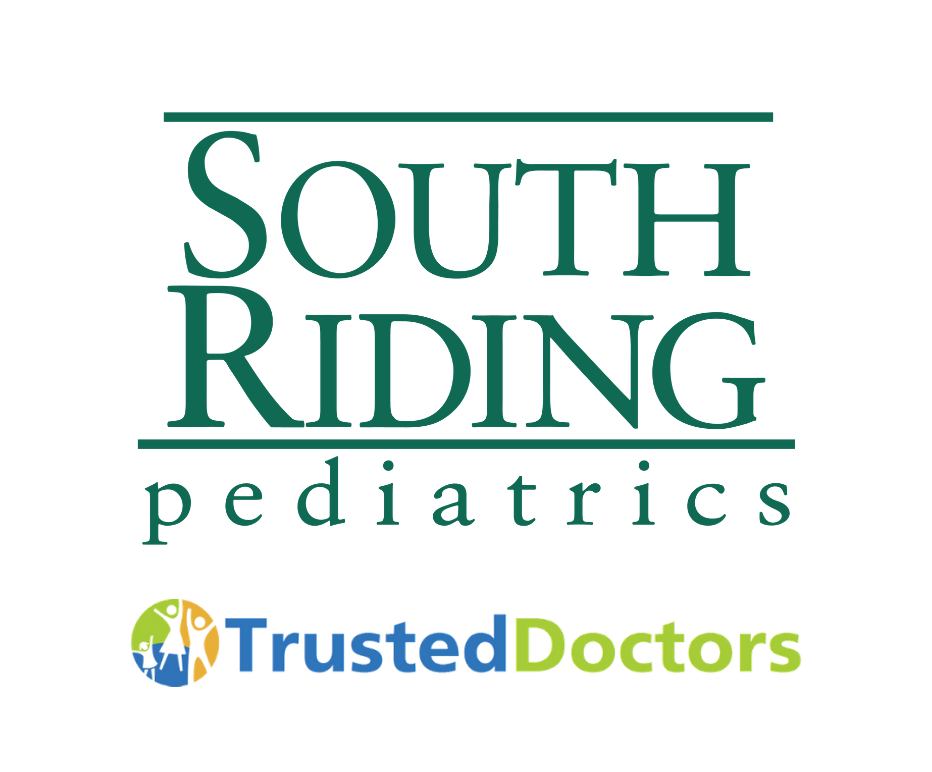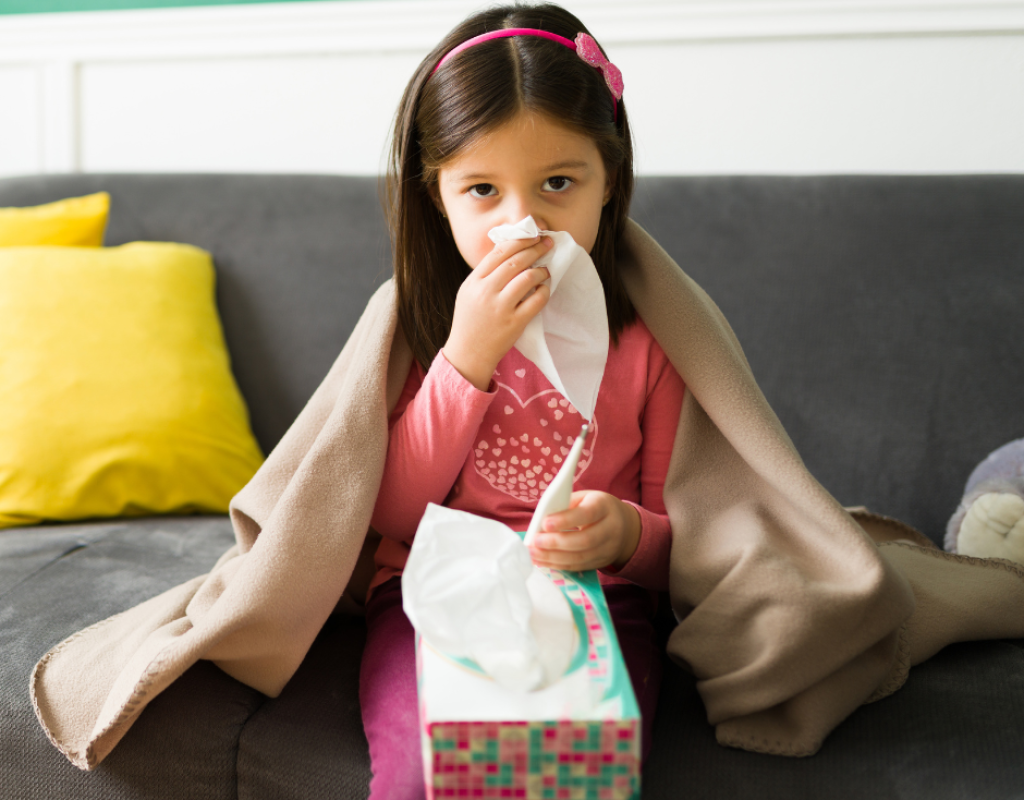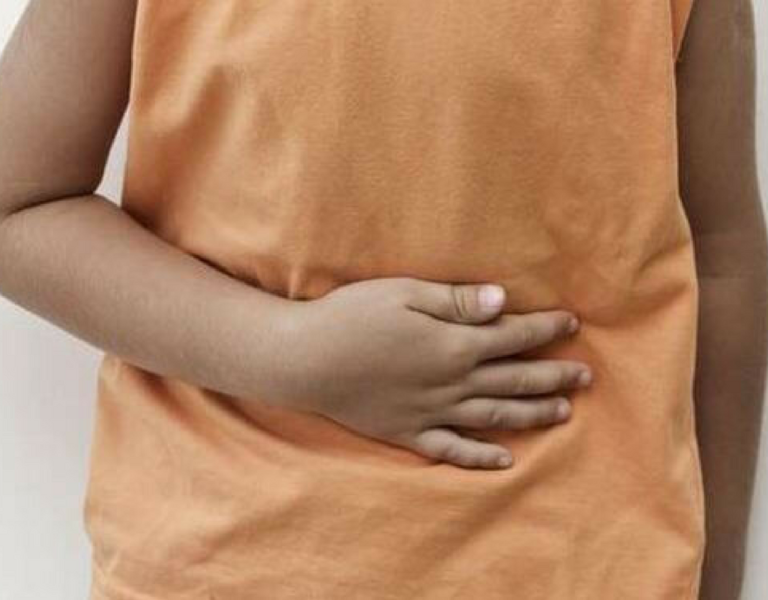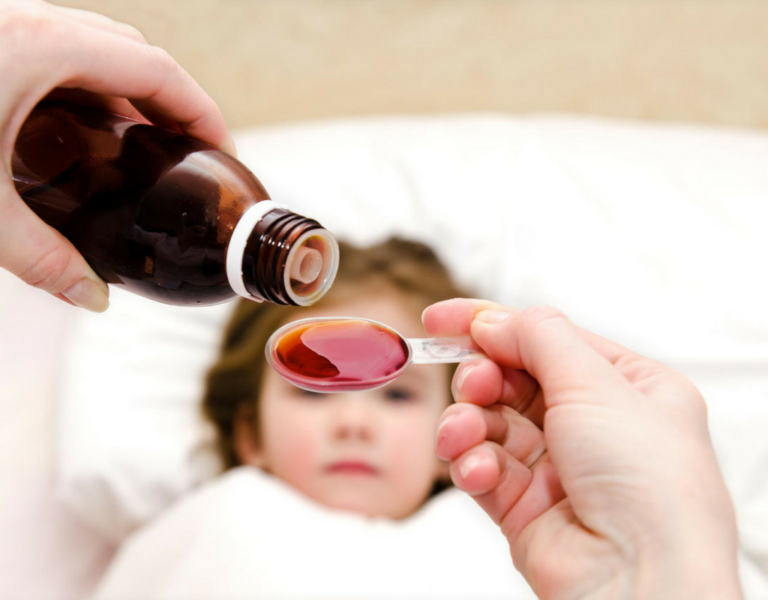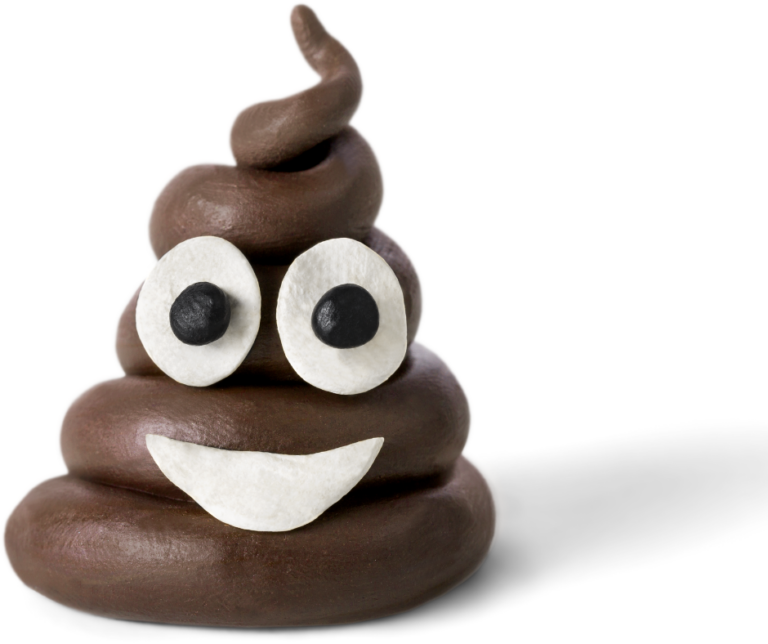When your child spikes a fever, starts coughing, or comes home with a runny nose, one of the first questions parents ask is: what illness is this? Colds, Flu, COVID, and RSV share so many overlapping symptoms that it can be hard to tell the difference.
The truth is: you cannot reliably tell which virus is causing symptoms without testing.
1. “Colds” vs. Flu vs. COVID vs. RSV
Here’s how these illnesses often present—though symptoms overlap:
Colds: Runny nose, congestion, sore throat, mild cough. Usually mild, may last 7–10 days.
Flu: Sudden onset of fever, chills, body aches, headaches, and fatigue. Kids often look sicker with the flu than with a cold.
COVID-19: Can look like either a cold or flu—fever, congestion, cough, sore throat—and sometimes includes loss of taste/smell or GI upset.
RSV: Starts like a cold (runny nose, cough), but in infants and toddlers it may progress to wheezing, fast breathing, or pauses in breathing.
Because they’re so similar, testing is the only way to know for sure. The good news? Supportive care—rest, fluids, fever control—remains the mainstay for all.
More information on colds & flu
More information on the ill child
2. First-Line Care at Home
Most children recover with time and comfort measures:
Keep them hydrated with water, electrolyte drinks, broths, or popsicles.
Use a humidifier and saline mist/spray/drops to ease congestion.
Offer cold or warm fluids for sore throats → cold or warm fluids feel better for sore throats rather than room-temperature fluids.
Give honey (for children over 1 year old) to soothe cough.
Use acetaminophen (Tylenol) and/or ibuprofen (Motrin/Advil) for fever or discomfort. Remember ibuprofen is only safe for kids 6 months and older.
Why not cold medicine? Over-the-counter cough and cold products, including NyQuil, are not safe or effective for children. They don’t shorten illness and can cause side effects.
More information on over-the-counter medications
3. When to Call the Doctor
Call our office if your child:
Has any trouble breathing (fast breathing, wheezing, chest retractions, nostril flaring).
Shows signs of dehydration: no urine for 8+ hours, dry lips, no tears, very few wet diapers.
A fever in an infant under 6 months, fever >104, trouble controlling fever with medication, or even a mild fever lasting 3 or more days in older children.
Is unusually sleepy, irritable, or hard to wake.
Has a rash with their fever.
Is very fussy/inconsolable.
Has a chronic condition such as asthma or diabetes and is not improving.
Any other concerns or questions.
4. Children at Higher Risk
Some children need closer monitoring during cold and flu season:
Any infant under 6 months of age, particularly under 2 months of age.
Asthma: Viral infections often trigger asthma attacks. Continue daily controller medications as prescribed and keep rescue inhalers nearby.
Diabetes and other chronic health conditions: These children may become sicker more quickly and need earlier evaluation.
5. Fever: What Parents Should Know
For children over 6 months, mild fever (<104) itself is not dangerous—it’s the body’s way of fighting infection. What matters most is how your child is acting.
Any fever in a child under 2 months of age is an EMERGENCY. Please call the office immediately or take infant to the emergency department.
We also closely monitor fevers in those under 6 months of age. Please call the office.
For children over 6 months of age:
Treat fever if your child is uncomfortable, not drinking well, or not sleeping.
Use acetaminophen or ibuprofen as directed.
Never use aspirin in children due to risk of Reye’s syndrome.
6. Antivirals and Medical Treatment
While most children recover with supportive care alone, some illnesses do have targeted treatments:
Flu: Antivirals like Oseltamivir (Tamiflu) may help, especially for high-risk kids, if started within 48 hours.
COVID-19: Antiviral treatments may be available for patients 12+ who are at higher risk.
RSV and colds: No antivirals exist. Treatment focuses on hydration, comfort, and breathing support if needed.
7. The Takeaway
Don’t stress over which virus it is—cold, flu, COVID, or RSV—because you can’t tell without testing.
Focus on supportive care: fluids, rest, fever control, honey (over 1).
Avoid over-the-counter cold medicines in children.
Call us right away for fever in a young infant, breathing troubles, dehydration, very high fever, prolonged fever, if your child has a chronic condition, worsening symptoms.
Remember: we are here to support you.
Visit our Parent Resources for more help, and reach out to our office whenever you’re uncertain.
